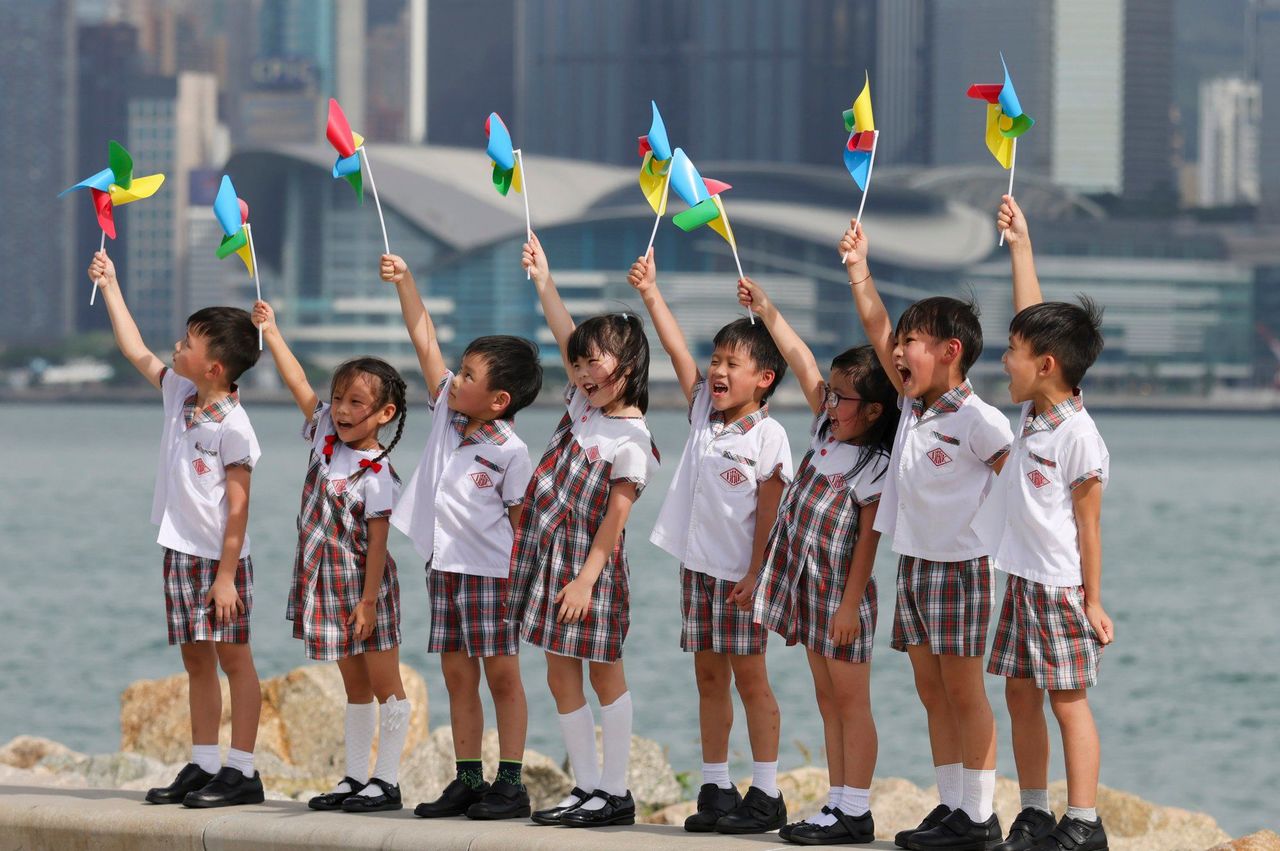With another school year starting and no sign of a let-up in Covid-19 restrictions, young people’s mental health and social development continue to suffer. The rise in suicides and those needing help show the damage that has already been done, and further disruptions would only make things worse.
The Covid-19 pandemic has had a severe economic, social and emotional impact around the globe. But, while much of the world is returning to some kind of normal, Hong Kong is still searching for a way out.
Of course, the large number of deaths among older adults during the fifth wave earlier this year was tragic and must not be repeated. Yet, in contrast, young people who are infected with the coronavirus tend to suffer relatively mild symptoms and have a good prognosis for recovery – but they are the ones paying a high price for the city’s strict Covid-19 policies. Their learning and social lives have been massively disrupted over the past 2½ years.
Their educational progress and the mutual emotional support usually built up through school activities have been heavily compromised, and perhaps sacrificed altogether. A recent survey by the Lutheran Social Service has highlighted the unintended consequences of the social distancing rules that came into force during the pandemic.
An increasing preference to avoid social activities, spending more time on social media and a growing risk of acute social withdrawal have become prevalent among young people. Remote learning is less effective, especially for young students, and reduces interaction among classmates that helps them build social bonds with each other.
Students from low-income groups have suffered disproportionately because of insufficient resources and parental support, with the disparity between the haves and have-nots becoming more serious. Enforcing social distancing without sufficient backup plans has led to increased isolation. The number of young people suffering depression is surging amid the pandemic.
Elsewhere, closing schools has been a last resort in trying to contain the spread of Covid-19 as other places understand the collateral damage it can inflict on young people. Unfortunately, in Hong Kong, children’s school days seem to be the first casualty, and this has created many unintended consequences that will weigh on students’ well-being and development.
According to the latest Coroner’s Court report by Samaritan Befrienders, the suicide rate for the 0-19 age group rose from to 2.84 in 2019 to 2.91 in 2020 and 3.73 last year, with 40 deaths by suicide recorded in 2021. That is an increase of more than 20 per cent compared to 2020.
The situation remains difficult. Our early warning system issued its highest alert earlier this year after an alarming rise in suicide cases. The disruption to students’ school lives and lack of peer support is likely to have contributed to the increase. Fortunately, thanks to the combined efforts of schools, NGOs and the Education Bureau, the increase abated during June and July.
When young people have emotional problems, they often turn to their close friends first to seek help, especially if they feel they cannot talk to relatives. The Open Up online emotional support platform has highlighted the mental health needs of Hong Kong’s young people, especially during the pandemic.
The pleas from schools to maintain full-day, in-person classes for the sake of student development, despite the recent surge in Covid-19 cases, is justified. Suicide is more of a threat to young people than Covid-19. The impact of the virus on young people’s physical health is limited, and some who are vaccinated might have made a full recovery without even knowing they were infected.
The emotional impact of pandemic-driven disruptions on their lives is long-lasting, though. We need cooperation between families and schools to help our young people. Those who have good relationships with their parents do better in such challenging circumstances than those who do not.
It is understandable that some parents – particularly professionals and those in high-skill jobs – might be able to work from home and spend more time with their children. It is a very different story for parents who cannot work remotely, are struggling to keep their job or live in a tiny apartment.
With a new school year upon us, everyone needs to pay attention to our young people’s well-being this September and October. They might need a bit more time to adjust after so many disruptions during the past year. Some schools are focusing on student orientation in the first week and building bonds among students and teachers, something that is just as important as academic drilling.
 Children have a graduation photo taken at West Kowloon Cultural District on July 17.
Children have a graduation photo taken at West Kowloon Cultural District on July 17.
Also, happy schools produce happy children, who achieve better results. There is little to be gained from pushing students too hard to make up the ground lost because of pandemic-driven disruptions.
We need to avoid putting too much pressure on our young people, especially as their safety and support systems are not yet fully established. In response to the recent increase in Covid-19 cases, the government may well be preparing more changes to the school year. A better understanding of the science and all the data should guide its policy formulation.
While it is important to protect public health amid the pandemic, it is essential to also protect the physical, mental and social well-being of young people in Hong Kong. The importance of harmonious family relationships for young people’s mental health, in helping them cope during the pandemic, cannot be understated.
Quality family time has a positive influence on young people’s mental well-being. Efforts from the business community to provide family-friendly working environments that help achieve that goal will certainly be welcomed.















